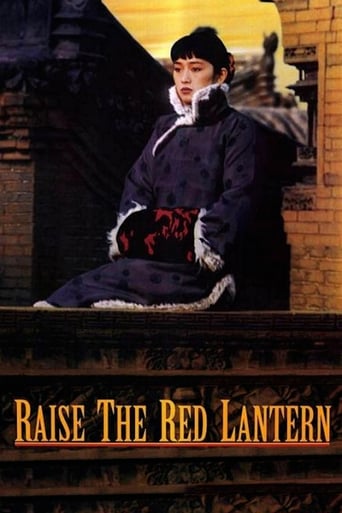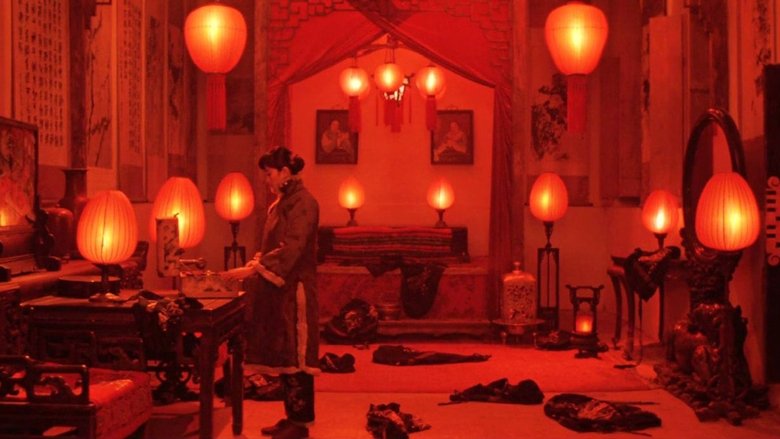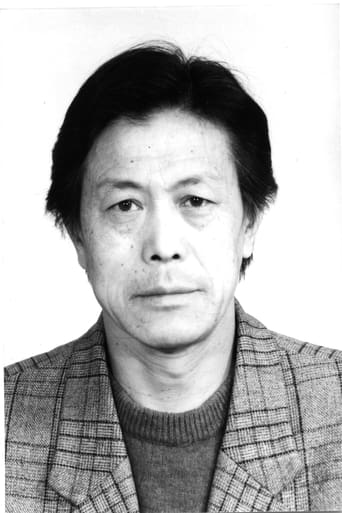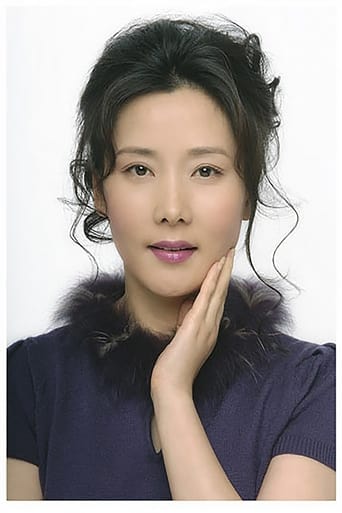Raise the Red Lantern (1991)
In 1920s China, a nineteen year old Songlian is forced to marry the much older lord of a powerful family. With three wives already, each living in a separate chamber in the mansion, they constantly play mind games for his attention. Songlian joins the fierce competition, slowly uncovering the dark truths that lie within their gilded cage.
Watch Trailer
Cast
Similar titles


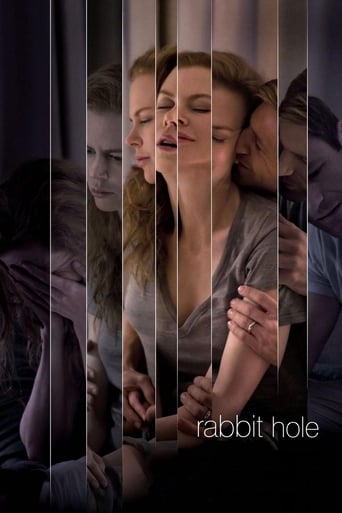
Reviews
Very very predictable, including the post credit scene !!!
Memorable, crazy movie
hyped garbage
The film never slows down or bores, plunging from one harrowing sequence to the next.
10 stars: Raise the Red Lantern: One of the Best Films of All Time There is a very short list of the best Chinese films of all time. In my book "The Best 150 Chinese Films of All Time", there are a dozen films made by Zhang Yimou listed in the top 150. That is an unbelievable achievement. It means Zhang Yimou, easily the greatest director in Chinese Cinema history, accounted for almost 10% of the greatest films ever made in China. Raise the Red Lantern and Farewell, My Concubine are two of those films. This film, Raise the Red Lantern, refers to the signal a rich husband would give for which wife or concubine he wanted for that evening. The movie begins the same way as Red Sorghum, with a wedding procession, but then deviates wildly from that film. It is extremely difficult for any camera shot to make Gong Li look dowdy, but Zhang was a master of downplaying both Gong Li's sexy body, and her God-awful natural beauty; no easy task. As the newest wife, the Gong Li character is pampered in every possible way. Only the finest clothes, food, and surroundings are provided for her; and her servants do everything for her as well. Naturally, she becomes the favorite of the master of the house (what idiot would not make her the favorite?). A recurring theme in several Zhang films and Gong Li roles was the helplessness of Chinese women in a totally patriarchal society in China. Men were always in complete control, and women had only their bodies to negotiate for any power within a relationship. This is an underlying principle that millions of modern-day women can empathized with. Ultimately, just like in real life, a younger, equally beautiful woman comes along to become the next wife, and the red lantern goes out for Gong Li, as the younger woman now becomes the favorite. Millions of women can commiserate with this situation as well. This is a Zhang Yimou masterpiece, and one of his best. Not to be missed.
I knew nothing about this Chinese film before reading about it in the book, then I saw critics gave it high praise and full marks, so I hoped for another deserved listed entry, directed by Yimou Zhang (Red Sorghum, Hero, House of Flying Daggers, The Great Wall). Basically set in the 1920s, nineteen-year-old Songlian (Gong Li) is an educated woman, her father has recently died and left the family bankrupt, she is forced to abandons her studies and marry Chen Zuoqian (Jingwu Ma), the wealthy lord of a powerful family, becoming his fourth wife. Arriving at the palace, Songlian is first treated like royalty, given foot massages and brightly lit red lanterns outside his private quarters, but she soon discovers that not all the concubines in the household receive the same luxurious treatment. The master, whose face is never clearly seen, decides on a daily basis which concubine he will spend the night with, whomever he chooses will get lanterns lit, get luxuries, and get the most attention and respect from servants. This causes the four wives to be in competition against each other, continually vying for their husband's attention and affections. The First Mistress, Yuru (Jin Shuyuan), appears to be almost the same age as the master himself, despite giving the master a son years earlier, she is assigned to live her life as forgotten, passed over in favour of the younger concubines. The Second Mistress, Zhuoyun (Cao Cuifen), befriends Songlian, complimenting her youth and beauty, and giving her expensive silk as a gift. She also warns her about the Third Mistress, Meishan (He Saifei), a former opera singer who is spoiled and is unable to cope with no longer being the youngest and most favoured of the master's playthings. As time passes, though, Songlian learns that it is really Zhuoyun, the Second Mistress, who is not to be trusted. Songlian pretends to be pregnant, attempting to gain more attention from the master, and at the same time, trying to actually become pregnant. Zhuoyun, however, is in league with Songlian's personal maid, Yan'er (Kong Lin) who finds blood-covered garments, suggesting Songlian had recently had her period, discovering the pregnancy is a fraud. Family physician, Doctor Gao (Cui Zhigang) is summoned by Zhuoyun, the doctor is secretly having an affair with the Third Mistress. The pregnancy is confirmed to be a sham, the master is infuriated, and orders Songlian's lanterns are covered with thick black canvas bags indefinitely. Songlian blames Yan'er for these events, she reveals to the house that Yan'er's room is filled with lit red lanterns, the maid dreams of becoming a mistress instead of a lowly servant, and suggesting she is in love with the master and may have slept with him. Yan'er is punished by having the lanterns burned while she kneels in the snow, watching as they smoulder, she refuses to apologise and remains in the snow throughout the night, she collapses, falls sick and ultimately dies. Songlian is told of the passing of her former maid, she comes to the conclusion that she is happier in solitude, seeing the competition between the concubines as a useless endeavour. As Songlian retreats further into her solitude, she begins speaking of suicide, reasoning that death is a better fate than being a concubine for the lord. On her twentieth birthday, severely intoxicated and despondent, Songlian inadvertently blurts out the details of the love affair between Meishan and Doctor Gao to Zhuoyun, after the adulterous couple are caught together by Zhuoyun, Meishan is dragged to the room of death, she is hanged to death by the master's servants. Songlian, already agonising the fruitlessness of her life, witnesses the hanging and is emotionally traumatized, after the summer, when the master marries a fifth concubine. In the end, Songlian is seen wandering the compound in her old schoolgirl clothes, she has gone completely insane. Also starring Qi Zhao as the Housekeeper and Chu Xiao as Feipu, the master's eldest son. The leading actress is beautiful and compelling as the vulnerable teenager trying to adjust to living under the strict rules and tensions of the household, I just about got the gist of the story, the red lanterns of the title certainly helped, but this is also full of wonderful use of colour, symbolic compositions, stylised sets, terrific costumes and breathtaking rural landscape, an interesting and worthwhile drama. Very good!
Zhang Yimou's film "Da hong deng long gao gao gua" (1991) has become one of my few safehavens: a film I retreat to when I return from my film adventures and long for refreshment. What I like the most is how this is shot, that is, With such discipline: the shots are highly symmetrical, either horizontally or in depth, and often than not in depth. It's amazing, and shows what three-dimensional filmmaking really is all about. I talk of discipline, since they could have shot each scene the ordinary way, going far closer than they do, but instead they step back and let the space of the place suck you in. This creates a wonderful sense of loneliness in the context of the film, and the closeups then have added power.Speaking of which, this has somewhat ousted another architecturally brilliant film from the same year (1991), just as radical if not more in its use of space, but a lot tougher to sit through. The same with sound: the contrapuntal dance of sounds and silence, just like that of long shots and closeups, beautifully emphasizes the few important motifs that the soundscape offers us.But the riches of the film far transcend only the technical, no matter how reinvigorating and masterful they be. Songlian's marriage, as demonstrated by the first scene, is actually an act of rebellion towards her mother and the values her mother represents. Dramaturgically there is an unexpected symmetry there, since when she gets to the house, she finds that all the women do just that, rebel and play the game with far greater ruthlessness than her.Indeed, the film plays out just like a game of light. The lanterns are lit, they change houses, with it all the perceived authorial power in the game (I think this aspect is occasionally misinterpreted as melodrama). But it wouldn't have worked without Gong Li, who is lovable, beautiful and subtle enough so that in the end we start reading our own projections and assumption on her face.As far as I know, there isn't a decent Blu-ray of the film in existence. I own a French Blu-ray, which is unfortunately not of a very good quality, and might pose problems for people who don't know French (or Mandarin!), since it's the only subtitle option available.
Zonglian is a woman forced to drop out of college and marry a wealthy older lord when her father dies. But she is merely a fourth wife who must live in a house, as does her three "sisters". The man chooses one of four wives each night, and red lanterns are lit above the respective wife's house. This causes the wives to resent each other and compete for his attentions, and even Zonglian's maidservant plots against her.After Zonglian gets herself disgraced by making the false claim that she had been impregnated by the lord, she forms a sort of friendship with the formerly jealous third wife, who admits having an affair with the family doctor. But things get even worse when Zonglian is tricked into admitting the secret.China was never a happy place under Communism, but it certainly wasn't much better before it either.
